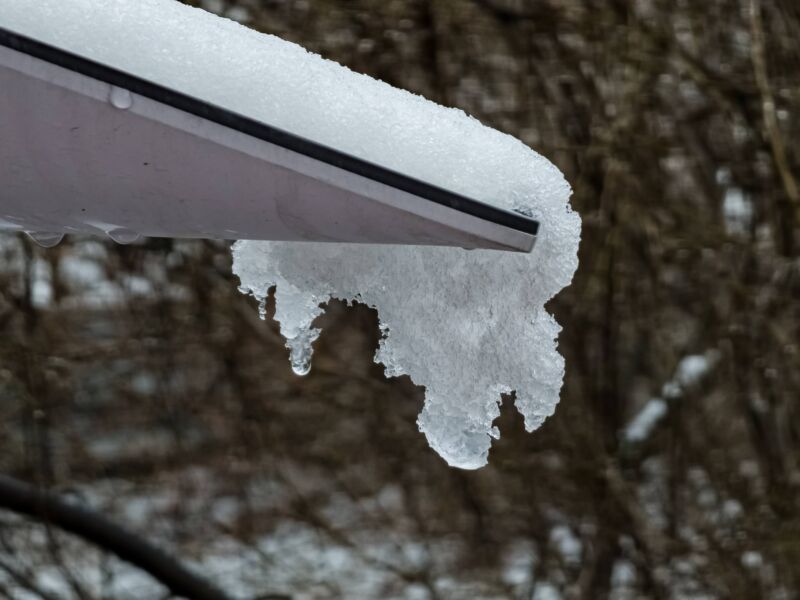Starlink's mobile ambitions were dealt at least a temporary blow yesterday when the Federal Communications Commission dismissed SpaceX's application to use several spectrum bands for mobile service.
SpaceX is seeking approval to use up to 7,500 second-generation Starlink satellites with spectrum in the 1.6 GHz, 2 GHz, and 2.4 GHz bands. SpaceX could still end up getting what it wants but will have to go through new rulemaking processes in which the FCC will evaluate whether the spectrum bands can handle the system without affecting existing users.
The FCC Space Bureau's ruling dismissed the SpaceX application yesterday as "unacceptable for filing." The application was filed over a year ago.
The FCC said the SpaceX requests "do not substantially comply with Commission requirements established in rulemaking proceedings which determined that the 1.6/2.4 GHz and 2 GHz bands are not available for additional MSS [mobile-satellite service] applications."
But the FCC yesterday also issued two public notices seeking comment on SpaceX petitions to revise the commission's spectrum-sharing rules for the bands. Dish Network and Globalstar oppose the SpaceX requests, and SpaceX will have to prove to the FCC that its plan won't cause harmful interference to other systems.
T-Mobile deal still on, but SpaceX wants more capacity
The FCC order won't stop SpaceX's partnership with T-Mobile, which uses T-Mobile's licensed spectrum in the 1.9 GHz band. In January, Starlink demonstrated the first text messages sent between T-Mobile phones via one of Starlink's low-Earth orbit satellites. Texting service for T-Mobile users is expected sometime during 2024 with voice and data service beginning later.
But SpaceX wants to use more spectrum bands to increase capacity in the US and elsewhere. Space has Starlink partnerships with several carriers outside the US.
SpaceX filed its application in February 2023. "Granting this application will enable SpaceX to augment its MSS capabilities and leverage its next-generation satellite constellation to provide increased capacity, reduced latency, and broader service coverage for mobile users across the United States and the world, including those users underserved or unserved by existing networks," the application said.
Dish Network owner EchoStar is angry that the FCC is still entertaining SpaceX's request for the 2 GHz band. "The FCC should immediately dismiss SpaceX's petition for rulemaking without seeking comment, because the mere action of seeking comment would provide it with undeserved credibility and threaten the certainty that has allowed EchoStar to innovate in this band leading to significant public interest benefits," the company told the FCC yesterday.
Spectrum interference dispute
The FCC's dismissal of the application described an ongoing dispute between SpaceX and satellite operator Globalstar over potential interference in the 1.6 GHz and 2.4 GHz bands:
SpaceX states that it can use a variety of strategies, including phased arrays and beam scheduling protocols, to "coexist" with existing operations without causing harmful interference to "any modern, capable, and well-designed" satellite system. SpaceX's interference analyses, however, rely on the successful outcome of coordination with co-frequency MSS operations. In opposition, Globalstar argues that the Modification Application lacks sufficient technical justification, contradicts settled Commission precedent, and jeopardizes important services, including emergency services, provided by Globalstar for more than two decades.
The FCC said the questions raised are substantial enough to require "a new rulemaking to determine whether there is additional availability for another CDMA MSS system in the 1.6/2.4 GHz bands, and if so, what operating criteria would be appropriate for that system. Absent such a rulemaking to address any changed circumstances, we conclude that the 1.6/2.4 GHz bands are not available for licensing of an additional NGSO [Non-Geostationary Orbit] MSS system. Therefore, the Modification Application's request to operate in these bands is not in substantial compliance with Commission requirements and is unacceptable for filing."
SpaceX, Dish spar over 2 GHz
There's a separate dispute between SpaceX and Dish over use of the 2 GHz band. Dish's 5G network uses traditional cell towers rather than satellites. The FCC described the dispute:
SpaceX, in seeking to introduce a new 2 GHz MSS system, argues that Dish is not currently offering MSS service in these bands and has no plans to offer MSS service. SpaceX states that, as with its proposed operations in the 1.6/2.4 GHz bands, it can use a variety of strategies to coexist with existing operations, while ultimately relying on the successful outcome of coordination with co-frequency MSS operations in its interference analyses in the 2 GHz bands. In its Petition to Dismiss or Deny the SpaceX Modification Application, Dish argues that the current 2 GHz regulatory framework does not allow for additional MSS systems and that the Commission's AWS-4 order acknowledged that only incumbent operators can deploy MSS operations in the band.
Dish owner EchoStar uses the 2 GHz band for mobile-satellite service, and it told the FCC that the band cannot handle another widely deployed service.
A 2012 FCC order limited use of the 2 GHz band to incumbent MSS operators "based on the impracticality of avoiding harmful interference if separate operators for MSS and terrestrial systems were authorized in the same band," the FCC said. The new rulemaking will determine whether changes over the past decade warrant the authorization of additional MSS systems.
"Absent such a rulemaking to address any changed circumstances, we conclude that the 2 GHz bands are not available for licensing an additional MSS system. Therefore, the Modification Application's request to operate in these bands is not in substantial compliance with Commission requirements and is unacceptable for filing," the FCC's dismissal of SpaceX's application said.
Comments on the rulemakings announced yesterday are due April 25, and reply comments by May 10. The dockets are available here and here.



3175x175(CURRENT).thumb.jpg.b05acc060982b36f5891ba728e6d953c.jpg)
Recommended Comments
There are no comments to display.
Join the conversation
You can post now and register later. If you have an account, sign in now to post with your account.
Note: Your post will require moderator approval before it will be visible.